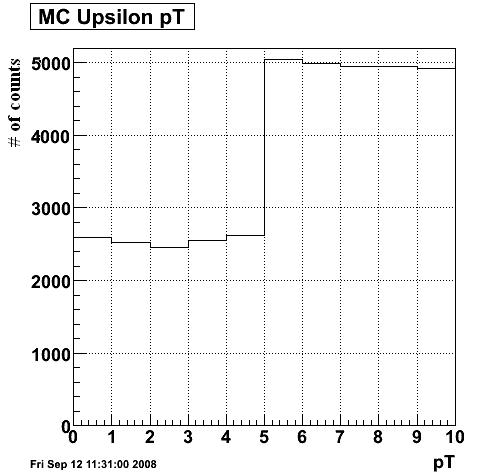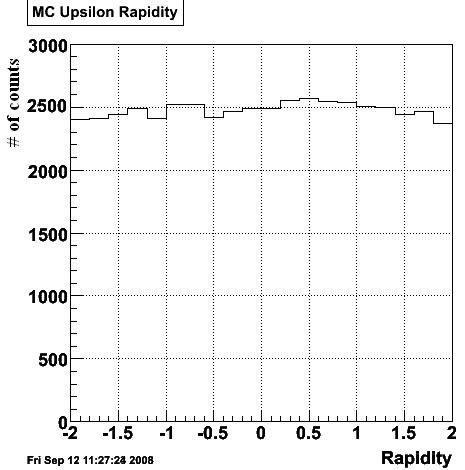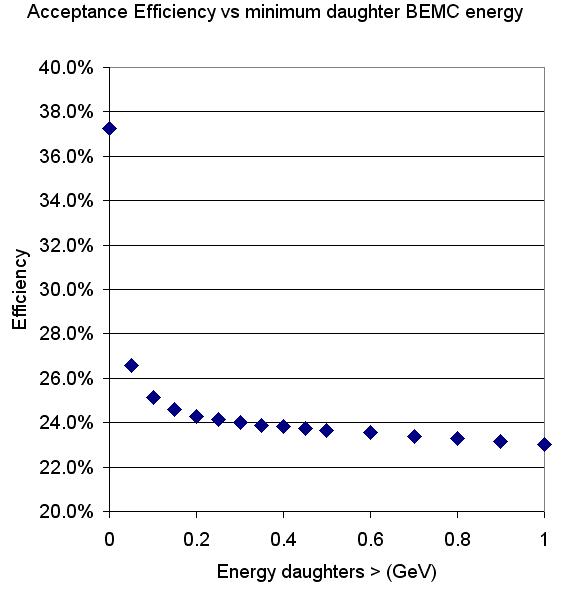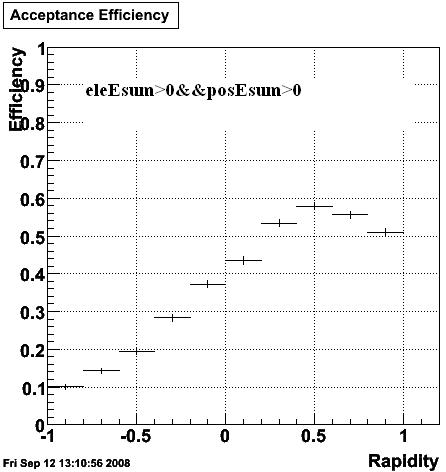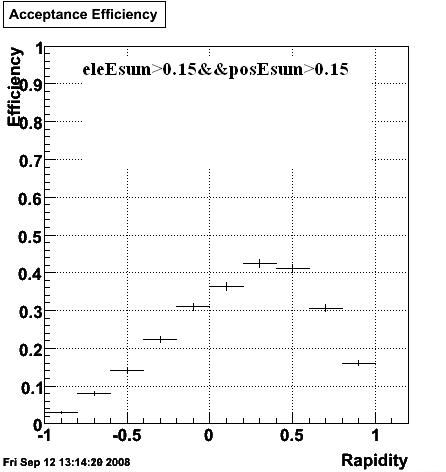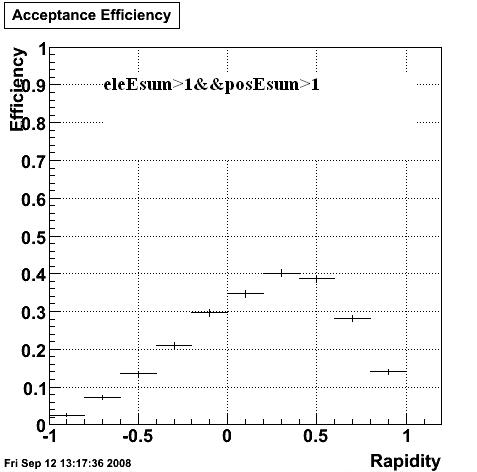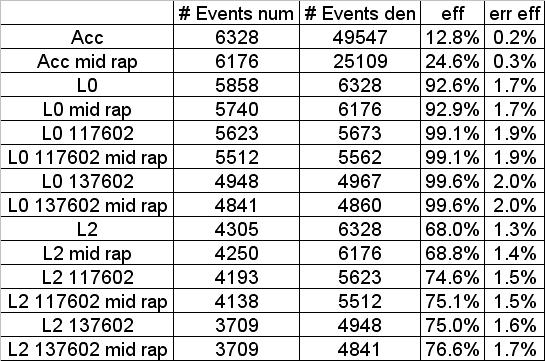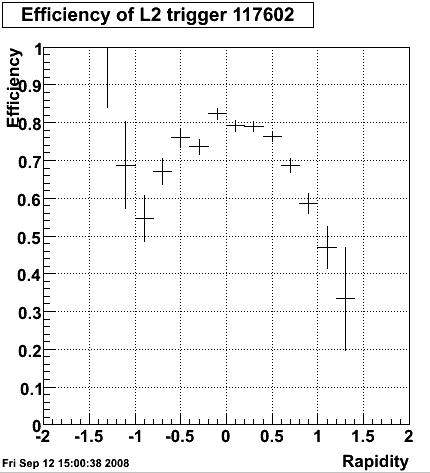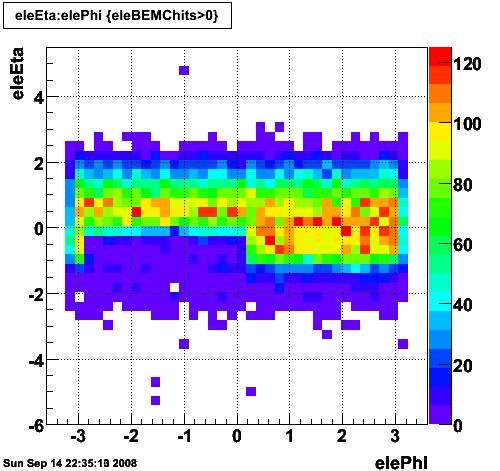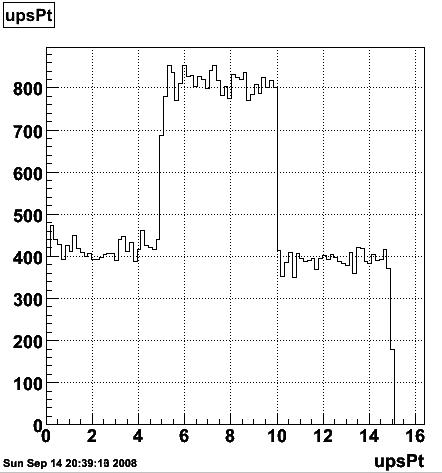Upsilon Trigger Efficiency Calculation for pp2006 triggers-> Upsilon 400 series
I have switched to running over the upsilon 400 series for this analysis until the new embeded set is available.
Figure 1: MC pT distribution of all upsilons
Maybe they ran this in chunks of pT and I'm missing some.....
Figure 2: MC rapidity of all upsilons
Figure 3: Acceptance efficiency vs Emin where accepted is # events with eleEsum>Emin&&posEsum>Emin. This is for mid rapidity |Uy|<1
I have picked 0.15 GeV as my minimum energy
Figure 4: Mid-rapidity Acceptance Efficiency vs rapidity for Emin = 0
Figure 5: Mid-rapidity Acceptance Efficiency vs rapidity for Emin = 0.15
This is my chosen minimum energy. I'm still concerned about the asymmetry of the shape. EDIT: asymetry is due to geometry. Full BEMC barrel not available.
Figure 6: Mid-rapidity Acceptance Efficiency vs rapidity for Emin = 1 GeV
Figure 7: Efficiency calculations with binomial error bars. Error bars are not correct when eff~100%
Figure 8: Efficiency vs rapidity for L2 trigger with trigger ID 117602
pT efficiency is flat as expected
Figure 9: L2 trigger efficiency vs rapidity for trigger 137602
I don't know why 117602 has the weird negative rapidity tail. Figure 9 has no cuts on upsilon rapidity, but none were triggered on if |Uy| > 1
Figure 10: Eta vs Phi for MC upsilon daughter electrons with BEMC hits > 0
Figure 10 demonstrates the missing area for the BEMC that has caused the asymetry in the acceptance efficiency. I will recalculate acceptance efficiencies for electron and positron phi>0, which will cause statistics to be limited but should me more accurate.
9357 upsilons with upsPhi > 0
1663 accepted
4734 upsilons at mid rapidity with upsPhi > 0
1628 accepted
Figure 11: Upsilon rapidity distribution for accepted upsilons with daughter particles having a phi > 0. Acceptance is now symmetric as expected.
Figure 12: MC upsilon pT for all upsilons
This data set was the combination of two series, one with flat pT distribution from 0 to 10 and the other from 5 to 15. So the number of upsilons/pT between 5 and 10 is twice the amount from 0-5 and 10-15.
- rjreed's blog
- Login or register to post comments

